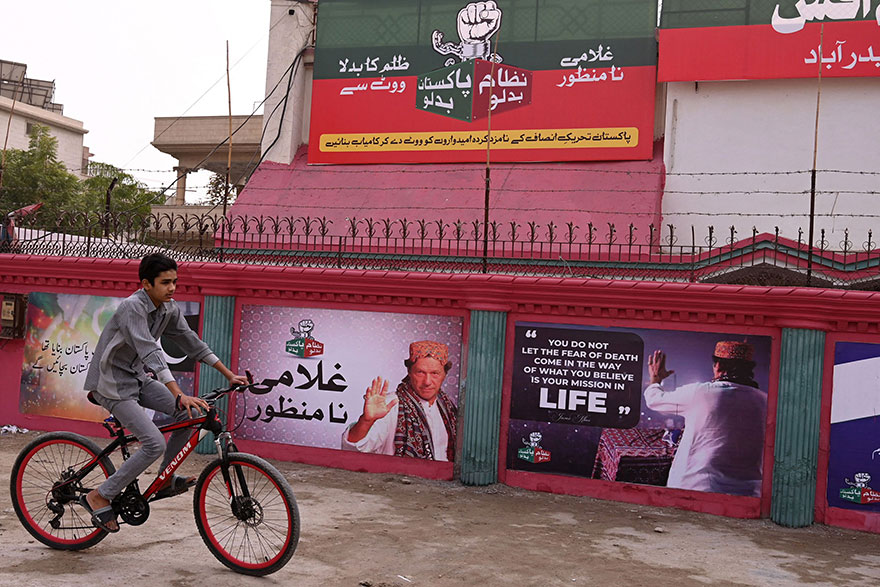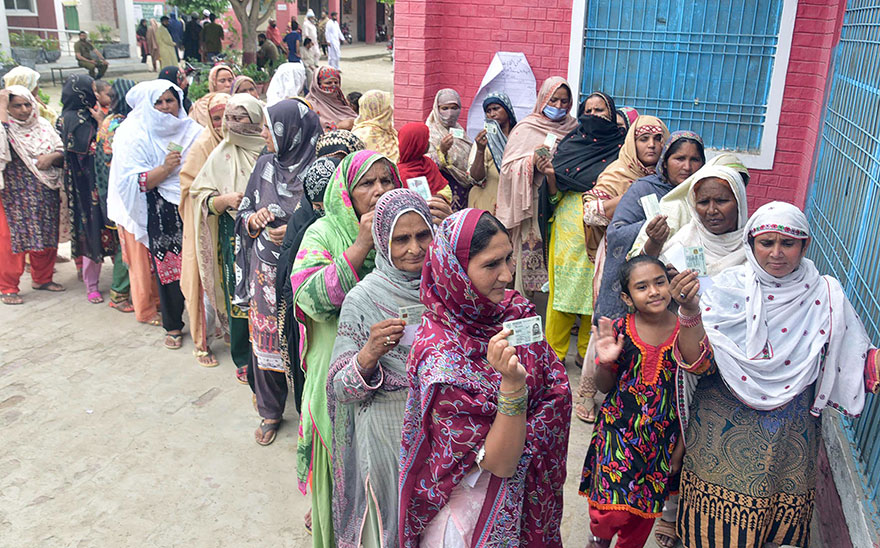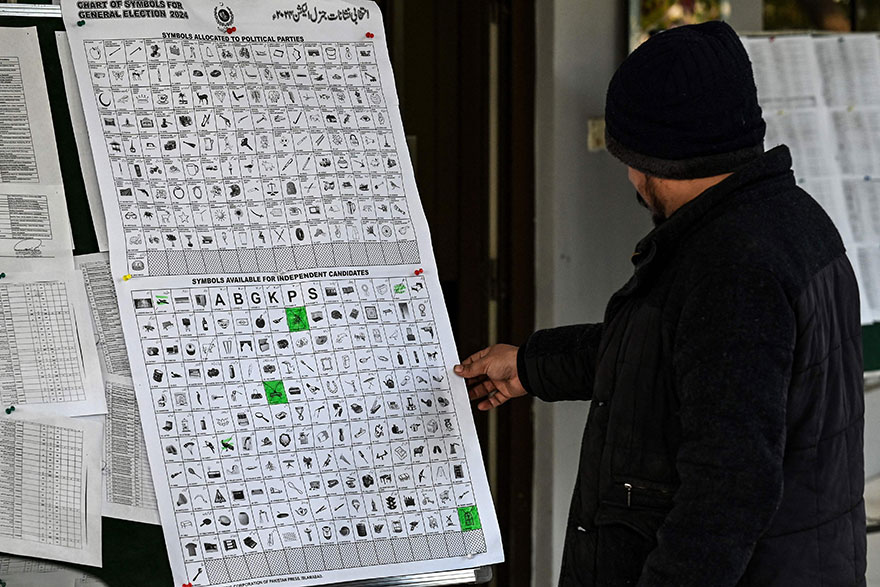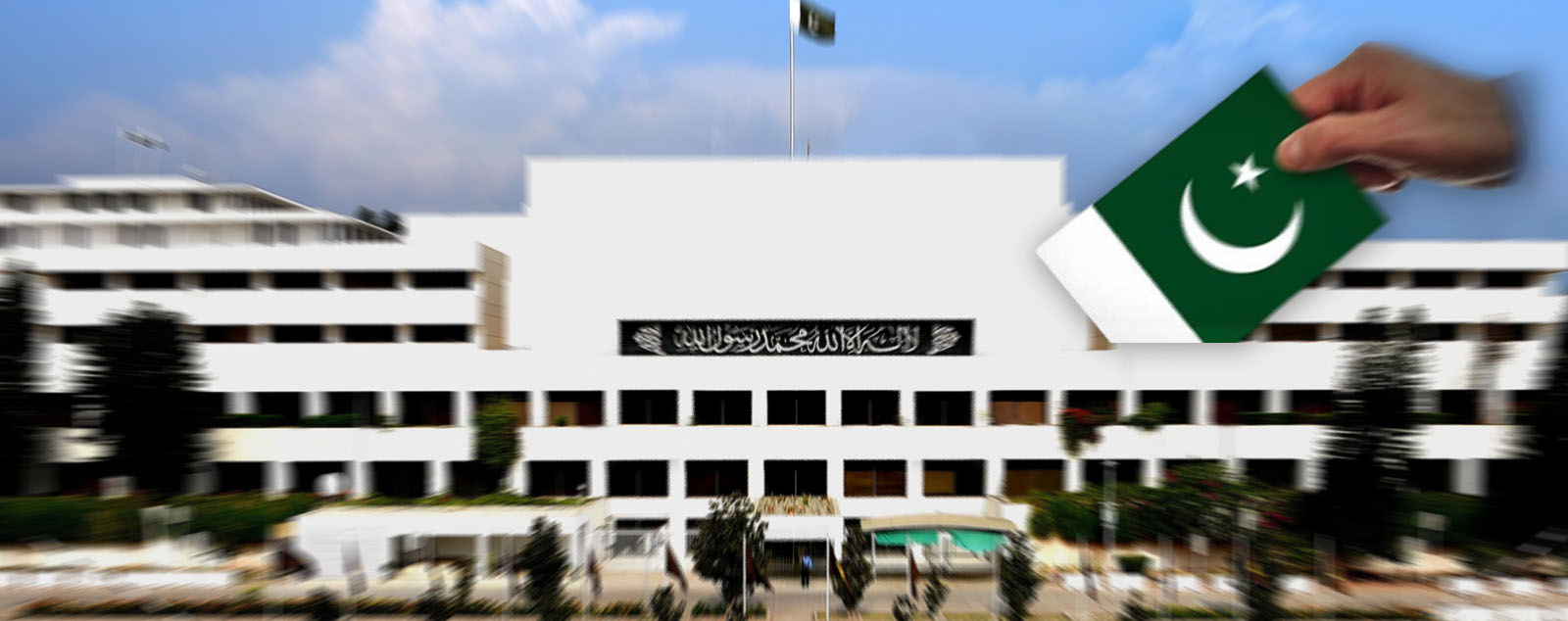Elections 2024: What to expect as polls coincide with economic, security crises?

After nearly a year of anticipation, the nation gears up for the February 8 general elections, believing their ballots hold the key to changing their days as record-high inflation compounded by a bearish job market continues to pinch wallets amid steep currency depreciation.
The upcoming polls have presented the voters with yet another decisive opportunity to elect new representatives who can deal with the pressing economic challenges and devise a line of action to turn the country around.
However, concerns remain as there's no way of knowing how things will pan out for Pakistan post-vote — whoever takes the helm and how.
As the major political parties were not sure if the polls would be held on time or at all, they started their canvassing campaigns very late, which is one of the reasons behind the rather mute electioneering atmosphere seen across Pakistan.
Why were elections delayed?
As per the Constitution, if an assembly is dissolved before the completion of its tenure the Election Commission of Pakistan (ECP) has to hold elections within 90 days of the dissolution and 60 days after the completion of the term.
However, with the notification of the new census, a spanner was thrown in the works, leading the ECP to decide to carry out fresh delimitation of the constituencies and then hold polls — in January 2023.
Eventually, when the matter landed in the Supreme Court, Chief Election Commissioner (CEC), Sikander Sultan Raja, in a meeting with President Arif Alvi agreed to conduct the general elections on February 8.
Despite the ECP and the presidency's assurance to the Supreme Court that polls would be held on February 8, political parties and observers still have their fingers crossed and rightfully so given an atmosphere of misgiving and the government's dilly-dallying on the issue.
A Senate resolution seeking to delay polls also added fuel to the fires of uncertainties.
Let’s take a look at key factors that would affect the election outcome as the nation goes to vote next week amid all this chaos and confusion.
All eyes on voter turnout
Now that the voters will be heading to the polls the focus will be on the turnout.
One of the most important reasons to keep a watch on the turnout is the lack of a level playing field specifically towards one party — the Pakistan Tehreek-e-Insaf (PTI), according to political analysts closely monitoring the situation.

The party was credited for mobilising the youth in the 2018 elections through its effective social media strategy but now it is facing several legal challenges.
Its founder Imran Khan has been convicted in graft and cipher cases and awarded rigorous imprisonment.
Many PTI leaders have gone into hiding, fleeing the crackdown launched after the violent protests of May 9, 2023.
Most importantly, the party lost its iconic electoral symbol — the cricket bat — a massive blow to its electoral prospects.
Taking all these into account it would be interesting to see if it dampens the spirit of the PTI voters or not.
Not only this, considering the uncertain scenario many parties had started their campaigning very late.
Instead, the Pakistan Muslim League-Nawaz (PML-N), which is being seen by many observers as the hot favourite to end up in the Prime Minister's Office, launched its campaign on January 15 and unveiled its manifesto a few days later on January 27.
Even though, Pakistan Peoples Party (PPP) Chairman Bilawal Bhutto Zardari shared his 10-point welfare agenda on December 27 to kick off his election campaign, the final manifesto was shared on the same day as the PML-N on January 27.
Apart from this, surveys conducted by Gallup showed that 57% of voters have complained of a lack of enthusiasm during the campaigning compared to 2018. Another survey, by the same organisation, showed that 78% of the respondents said no party had approached them for votes.

Considering such a scenario, it will be interesting to see how it plays out on the voters' minds and if they decide to head to the polls in such large numbers or not.
Security threats during polls
The security situation is another factor that can impact the voter turnout on the polling day as well as the transparency of the election. The law and order have deteriorated further as the country heads to polls, hampering political campaigns, especially in Khyber Pakhtunkhwa and Balochistan provinces.
According to the Pakistan Institute for Conflict and Security Studies (PICSS), an Islamabad-based think tank, the first month of the year has witnessed a disconcerting surge in militant activities, with a staggering 102% increase compared to the final month of 2023.
The PICSS report mentioned alarming statistics documenting at least 93 militant attacks across the nation in January 2024 resulting in 90 fatalities, 135 injuries, and the abduction of 15 individuals.
Despite the rise in attacks, the impact on human losses was somewhat mitigated. A 15% increase in resultant deaths and a 19% rise in injuries were reported.
Among those killed, the victims included 41 civilians, 37 security forces personnel, and 12 militants.
The injured comprised 81 civilians and 54 security forces personnel.
Similarly, attacks against election-related activities, including the targeting of candidates, have surged, the report mentioned.
The PICSS recorded 21 such attacks in January, claiming 10 lives and injuring 25. Notably, two candidates lost their lives – Rehan Zeb Khan, a prominent youth leader and PTI local leader from Bajaur, and an independent candidate from Mir Ali in North Waziristan.
Several candidates narrowly escaped harm in these attacks.
Result tabulation
One of the major controversies that emerged during the 2018 elections was the failure of ECP’s Result Transmission System (RTS), which led to a delay in the results.
Back then the ECP blamed the "technical glitch" for the failure.
This time the ECP is deploying the “Election Management System” (EMS). The electoral body has kept the system under wraps but on January 27 it said that it had carried out a “successful” test of the system. However, during the test, the EMS did face connectivity issues.
Nevertheless, political parties have been raising questions about the ECP's mechanism of transmitting, compiling and tabulating the poll results.
Lately, the PPP has written a letter to the commission raising serious objections to the introduction of a completely new system for electronic transmission of results — the Election Management System (EMS).
Whether the EMS delivers or not, all eyes will be on the result tabulation post-5 pm when the votes will be counted.
Independents, key to PM House
The PTI and the PPP both have been stating the PML-N is being favoured to win the polls. However, the party has denied the charge.
To become the prime minister a candidate needs to have the backing of 172 Members of the National Assembly (MNAs) out of 342.
A survey conducted by the Institute for Public Opinion Research (IPOR) showed that PML-N was leading in Punjab closely trailed by PTI. That said, it is clear the next will be a hung parliament.

But the problem for the PTI is that ever since it lost its election symbol following the January 13 Supreme Court verdict all its candidates are running as independents.
The party is still registered as a political party with the ECP but it remains to be seen if its candidates will be allowed to form a parliamentary group if they are elected.
Not only this, the verdict has opened up the party candidates' vulnerability to joining other parties if they are elected. Since they are running as independents they can be lured by either the PML-N or the PPP to join them to secure the PM House.
Thus, the independents along with smaller parties such as the Jahangir Tareen-led Istehkam-e-Pakistan Party (IPP) and Muttahida Qaumi Movement (MQM) will play a key role in determining which party forms the federal government.
Economic revival
Pakistani voters have been facing backbreaking inflation and a depreciating currency, adding to their economic hardship.
Furthermore, Pakistan is also currently in a $3 billion Standby Arrangement (SBA) with the International Monetary Fund (IMF). The Anwar-ul-Haq Kakaar-led caretaker government managed to complete the first review and secured the $700 million tranche but the $1.1 billion that will be released after the second review is pending.
The IMF mission is expected to arrive in Pakistan post elections and the first objective for the new government will be to ensure that the country remains on course.
Apart from this, considering the fiscal position the incoming government will also have to enter another IMF programme and whoever comes into power will have to ensure that it manages to win over such a facility that allows the party to fulfil its manifesto and get Pakistan out of the prevailing liquidity crisis.
Epilogue
As elections coincide with a spiralling economic slump and a worsening security situation, voters at large expect the next government to, above everything else, arrest the runaway food, fuel, power, energy, and medicine costs, improving their living standards.
On the other hand, economists are on tenterhooks over shrinking foreign exchange reserves — that have time and again pushed the country to the brink of default — and steep currency depreciation, tying the economic turnaround to political stability.
Muhammad Wajeeh is a staffer at Geo.tv. He posts on X @muhammadwajeeh




